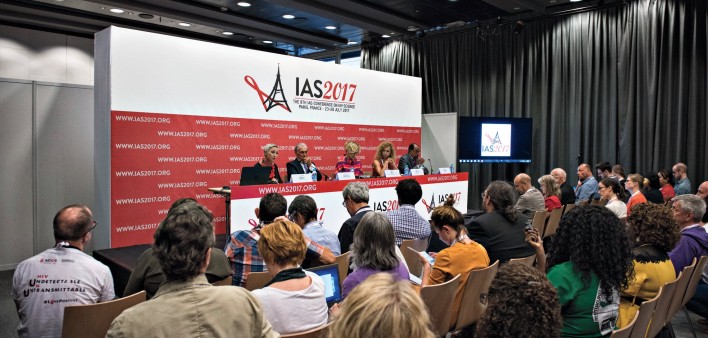Dear AIDS Activist,
Thank you for your dedication to improving the lives of people with HIV and to efforts to end the epidemic. The work you do is even more impressive now, when AIDS is no longer the cause célèbre.
Beneath the surface of the encouraging national epidemiological trends, young Black men in the U.S. South continue to contract HIV at unacceptable rates. Federal funding for HIV care, education and supportive services domestically and abroad is being seriously threatened.
This sad list goes on and sheds light on the darker parts of the current HIV landscape, and that is where you, the activist, should live and thrive. Only you can shout about them. But the community’s voice has been muted.
Attending an HIV conference used to be an exercise in exposure therapy for the conflict-phobic. Presenters prepared for probing questions from peers and activists. Polite colleagues might ask about sample sizes and subgroups, but AIDS activists went for the jugular, decrying the deadly slow pace of progress. At the International AIDS Society Conference on HIV Science this past summer in Paris, the activism on display was either bumbling or distracted.
AIDS activist, please don’t be rolled flat by the steamroller of antiretroviral awesomeness. We need you to once again be the vanguard against governmental indifference, industry overreach and HIV medical and research shortsightedness. In research, in particular, we feel the loss of your engagement, and you, once again, are needed.
The demands of the infected and affected guided the earliest research priorities and designs of pivotal studies. Dead-end research agendas were called out as wasteful, while funding for ambitious studies of promising medications became a rallying point.
Today, the science of HIV can benefit from your coproduction. That means demanding to help create research, not just be a mostly mute study team member whose presence allows a box to be checked. In an increasing number of research networks, patients are at the drawing board, designing and implementing research. How ironic it is that in HIV research, where the roots of such coproduction can be found, we are behind the times.
Just as important is your role in the resistance, pushing back against advances by the U.S. government to fund border walls and slash taxes for the wealthy at the expense of affordable and accessible health care. Policies that harmed people living with HIV were once met with responses that were fierce and noticed. Now, it is mostly white-coated health care providers using the bullhorns.
I understand that clinicians, researchers and the pharma industry saved your life, but it is not biting the hand that feeds you to question motives and demand action. To be clear, what I am calling for is not yelling for the sake of yelling. The early AIDS activists laid a foundation for a new kind of advocacy that involves an informed front line of individuals who have a personal stake in the fight against HIV—people who can use their voice to take a meaningful stand.
You have a great responsibility but also potential power to, once again, be a reckoned-with force. We again need your bold and constructive activism to be brought to the conference hall, the committee hearing room, the press conference, the research study team meeting and, when required, the streets. We again need your activism, now that people mistakenly think HIV is over. We again need your activism to step up, push back and not back down. But, above all, we again need your activism to be active.







Comments
Comments